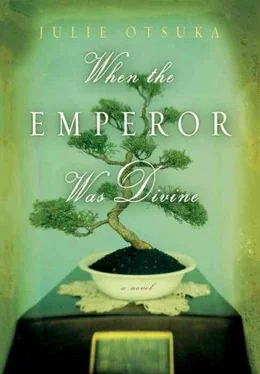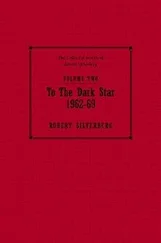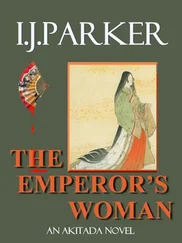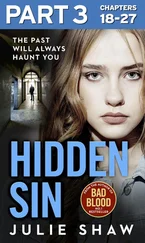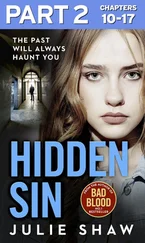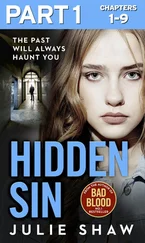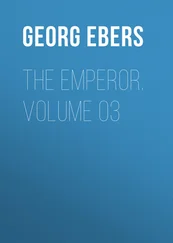Always, it seemed, he had something else on his mind.
Maybe he was thinking of our mother. Maybe he missed her and was hoping she’d come home from work soon. Maybe he was trying to imagine her, at that very moment, as she gazed back at her own reflection for the hundredth time in the toilet bowl of some stranger. Still there? Or perhaps he was remembering the promise he’d made to her, years before, right after they’d first married— You’ll never have to work —and he felt bad that he hadn’t come through. There were heavy blue veins around her ankles now, and her hands were red and rough, and every evening when she climbed up the front steps her feet seemed to move more slowly than they had the evening before. Or it is possible he wasn’t thinking of our mother at all. It is possible he was troubled by something he’d read in the paper earlier that morning— Lend Lease Diapers Used as Turbans by African Sheikhs! or Jap Emperor Repudiates Own Divinity! —and he’d had about as much news as he could take for one day.
BIRDSONG GREW FASTER, and shriller, and the chill slowly lifted from the air. Our mother rose early every morning and made us breakfast, then tied a white scarf over her head and hurried off to catch the next bus. She wore a shapeless black dress, sensible shoes, no lipstick. In a large brown shopping bag she carried an assortment of brushes and rags. Got to make it all shine. She moved briskly and did not complain. “Be good,” she called out to us on her way out the door.
It was a relief, she told us years later, to wake up every morning and have someplace to go.
As the days grew longer our father began spending more and more time alone in his room. He stopped reading the newspaper. He no longer listened to Dr. I.Q. with us on the radio. “There’s already enough noise in my head,” he explained. The handwriting in his notebook grew smaller and fainter and then disappeared from the page altogether. Now whenever we passed by his door we saw him sitting on the edge of his bed with his hands in his lap, staring out through the window as though he were waiting for something to happen. Sometimes he’d get dressed and put on his coat but he could not make himself walk out the front door.
Every once in a while we’d try bringing him his hat and inviting him to come out with us for a walk but he just smiled and waved us away. “You people go on ahead,” he said.
In the evening he often went to bed early, at seven, right after supper— Might as well get the day over with —but he slept poorly and woke often from the same recurring dream: It was five minutes past curfew and he was trapped outside, in the world, on the wrong side of the fence. “I’ve got to get back,” he’d wake up shouting.
“You’re home now,” our mother would remind him. “It’s all right. You can stay.”
THE FIRST SIGNS of spring: mild days, buds in the fruit trees, no more long lists of the dead. The mothers were all back in the kitchen now. The last of the fathers on our block—those who could—had come home, they were safe. The sun was in its place. There, up above us, but not too high. Strength was slowly returning. Speech was beginning to come back. In the school yard. At the park. On the street. They were calling out to us now. Not many of them. Just a few.
At first we pretended not to hear them, but after a while we could no longer resist. We turned around and nodded, we smiled, then continued on our way.
For two weeks in April the magnolia trees blossomed with pale white flowers and the skies were blue and clear. Purple hyacinths and narcissus came up in the garden, and tall stalks of mint, and every evening, at dusk, we wandered out into the yard and watched the starlings gathering in the trees. At night we slept with the windows wide open, and in our dreams we could hear singing and laughter and the endless turning of the leaves in the wind and in the morning, when we woke, for one brief moment we could almost forget we had ever been away.
In May, when the heat settled in and roses everywhere burst into bloom, we wandered the streets every day after school in search of the rosebush our mother had once planted in our front yard. At first we saw it wherever we looked—in the Gilroys’ front yard, and the Myers’, and lying low among the rhododendrons in the prize-winning garden of the Misses O’Grady—but upon closer inspection none of these rosebushes turned out to be ours. They were too big, or too small, or their petals too pale, and after a while we gave up and turned our attention to other things. But we never stopped believing that somewhere out there, in some stranger’s backyard, our mother’s rosebush was blossoming madly, wildly, pressing one perfect red flower after another out into the late afternoon light.
Everything you have heard is true. I was wearing my bathrobe, my slippers, the night your men took me away. At the station they asked me questions. Talk to us , they said. The room was small and bare. It had no windows. The lights were bright. They left them on for days. What more can I tell you? My feet were cold. I was tired. I was thirsty. I was scared. So I did what I had to do. I talked.
All right, I said. I admit it. I lied. You were right. You were always right. It was me. I did it. I poisoned your reservoirs. I sprinkled your food with insecticide. I sent my peas and potatoes to market full of arsenic. I planted sticks of dynamite alongside your railroads. I set your oil wells on fire. I scattered mines across the entrance to your harbors. I spied on your airfields. I spied on your naval yards. I spied on your neighbors. I spied on you— you get up at six, you like bacon and eggs, you love baseball, you take your coffee with cream, your favorite color is blue. I crept into your house while you were away and sullied your wife. Wait, wait, she said, don’t go. I touched your daughters—they smiled in their sleep. I smothered your firstborn son—he did not struggle. I stole your last bag of sugar. I took a swig from your best bottle of brandy. I pulled out the nails from your white picket fence and sold them to the enemy to melt down and make into bullets. I gave that same enemy your defense maps for free. The Boeing assembly plant is here. The oil refinery, there. “X” marks the spot where they make the camouflage nets. I sent him aerial photographs of your major coastal cities. I radioed to his submarines the location of your troop ships. I leaned out my second-story window and signaled to his aviators with my red paper lantern. Come on over! I left my lights on during the blackout. I went out into the yard and tossed up a few flares just to make sure he knew where to find you. Drop that bomb right here, right here where I’m standing! I cut arrow-shaped swaths through my tomato fields to guide him to his next target. Straight ahead to the air force base! I told him all about you. Tall and handsome. Big eyes. Long nose. Broad shoulders. Perfect teeth. Nice smile. Firm handshake. Solid family man. A joiner. Member of the Elks. The Kiwanis. The Rotary. The local Chamber of Commerce. Mows his lawn every Saturday and goes to church on Sundays. Pays his bills on time. Enjoys the occasional night out with the boys. Wife stays home and takes care of the kids. I revealed to him your worst secrets. Short attention span. Doesn’t always remember to take out the garbage. Sometimes talks with his mouth full.
Who am I? You know who I am. Or you think you do. I’m your florist. I’m your grocer. I’m your porter. I’m your waiter. I’m the owner of the dry-goods store on the corner of Elm. I’m the shoeshine boy. I’m the judo teacher. I’m the Buddhist priest. I’m the Shinto priest. I’m the Right Reverend Yoshimoto. So prease to meet you. I’m the general manager at Mitsubishi. I’m the dishwasher at the Golden Pagoda. I’m the janitor at the Claremont Hotel. I’m the laundryman. I’m the nurseryman. I’m the fisherman. I’m the ranch hand. I’m the farm hand. I’m the peach picker. I’m the pear picker. I’m the lettuce packer. I’m the oyster planter. I’m the cannery worker. I’m the chicken sexer. And I know a healthy young rooster when I see one! I’m the grinning fat man in the straw hat selling strawberries by the side of the road. I’m the president of the Cherry Blossom Society. I’m the secretary of the Haiku Association. I’m a card-carrying member of the Bonsai Club. Such a delightful little people! Everything so small and pretty! I’m the one you call Jap. I’m the one you call Nip. I’m the one you call Slits. I’m the one you call Slopes. I’m the one you call Yellowbelly. I’m the one you call Gook. I’m the one you don’t see at all—we all look alike. I’m the one you see everywhere—we’re taking over the neighborhood. I’m the one you look for under your bed every night before you go to sleep. Just checking, you say. I’m the one you dream of all night long—we’re marching ten abreast down Main Street. I’m your nightmare— we’re bivouacking tonight on your newly mowed front lawn. I’m your worst fear—you saw what we did in Manchuria, you remember Nanking, you can’t get Pearl Harbor out of your mind.
Читать дальше
